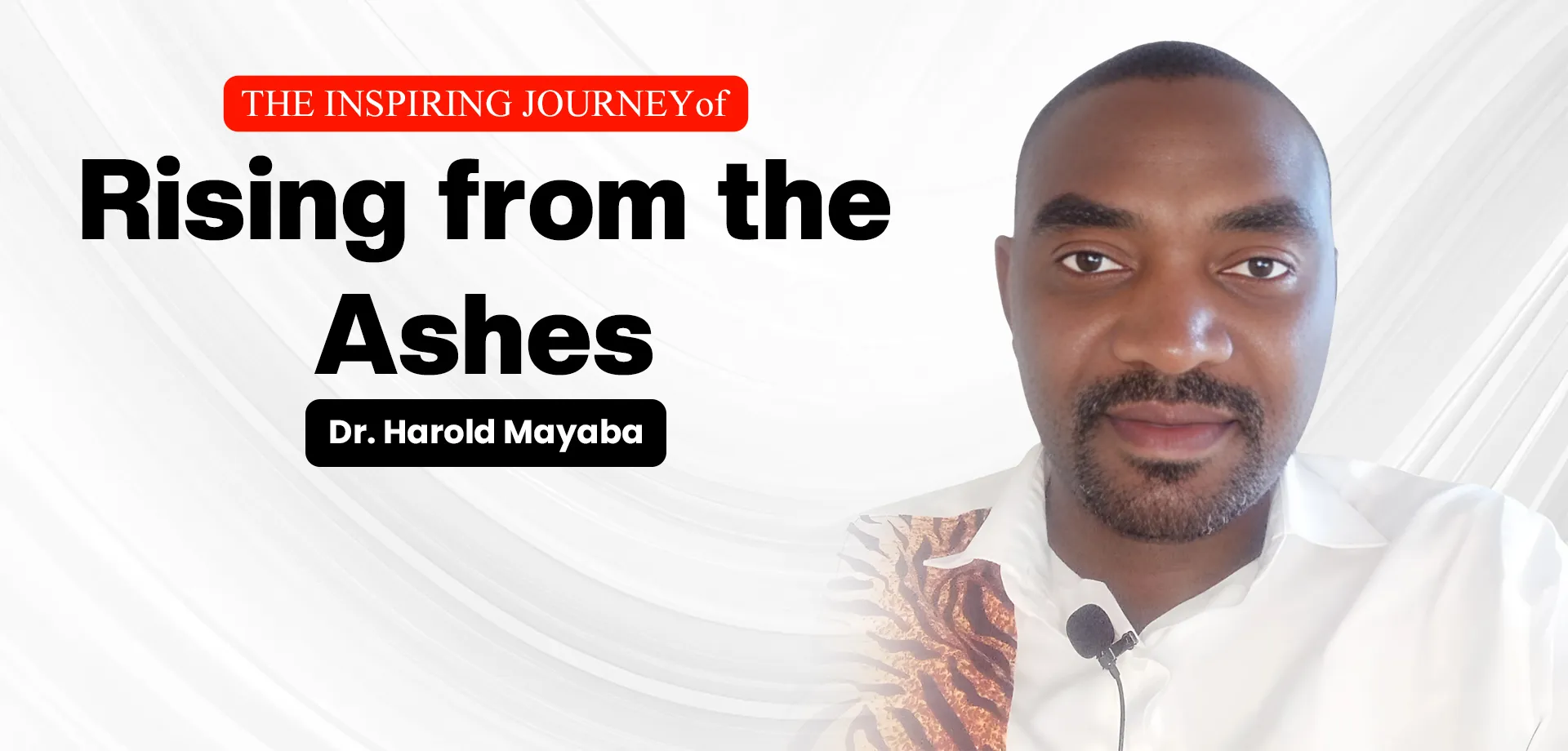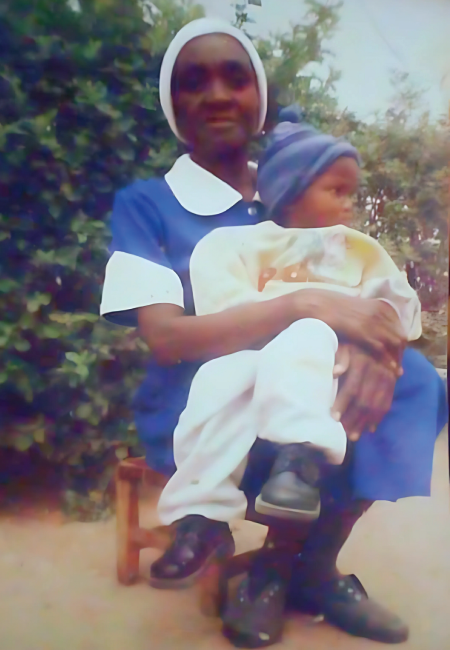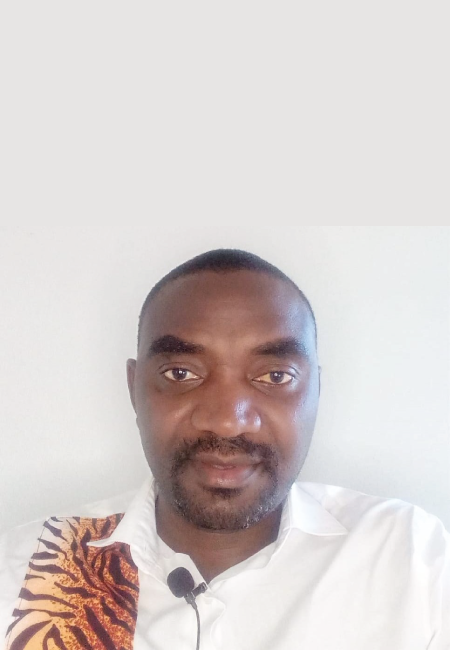

DEDICATION
This biography is first and foremost dedicated to my grandparents, whose love, wisdom, and unwavering belief in me laid the foundation for my journey. Though life presented countless challenges, their guidance and encouragement remained a beacon of hope in my darkest moments. They instilled in me the values of resilience, hard work, and integrity—values that shaped me into the person I am today. Every step I have taken, every milestone I have reached, is a tribute to the sacrifices they made and the dreams they carried for me.
I also dedicate this work to the youth of the world—those who dare to dream beyond their circumstances, who refuse to be defined by their struggles, and who relentlessly pursue a better future. To every young person facing hardships, uncertainty, or rejection, know that your story is not over. Every challenge is an opportunity, every setback a lesson, and every moment of doubt a chance to rise stronger. No matter how impossible your dreams may seem, persistence and faith will always pave the way forward.
to all those who have supported, encouraged, and believed in me—friends, mentors, colleagues, and loved ones—I extend my deepest gratitude. Your kindness and support have been invaluable.
May this biography serve as a source of inspiration, reminding us all that perseverance, education, and an unyielding spirit can turn even the most difficult beginnings into extraordinary success. Keep striving, keep believing, and never give up.
Dr. Harold Mayaba
Phase 1 : Born to Rise – A Childhood of Struggles
“What you are is God’s gift to you, what you become is your gift to God.” -Hans urs von Balthasar

Dr. Harold Mayaba began his life story in Zambia’s Southern Province when he came into this world. He entered life surrounded by conditions that would normally lock his destiny unless his strong will drove the path of his future. He entered life as his parents were teenagers, with his family starting to unravel before he understood its significance. The only figure who could have guided him with love and direction—a mother—died when he was very young, while his father remained absent in his life.
When a young child lives without their parent, their heart becomes empty while an indescribable void creates everlasting sadness between childhood and adulthood. The deep loss he felt remained hidden from him because he grew up in a culture where boys were told to be tough, not to show their emotions. His existence became one long sequence of adjusting while learning different survival skills. His grandparents provided a home even though their financial situation was dire, yet they raised him through love and firm guidance. The village in Zambia’s rural core was his residence with limited resources.
People living in the village experienced basic lifestyles, which demanded substantial effort. The sun’s daily ascension and descent governed the village’s daily existence, and survival needs governed every person’s activities. Harold began each day by hearing the birdsongs followed by faint human noises, which marked the start of the day.
Attending a school required more than one thought because of financial problems. Education remained out of reach for many as a luxury since it did not come with any promise of attainment in rural Zambia. Children who came from families without enough finances remained outside classrooms since their families lacked funds for necessary school expenses.
During his early life he suffered mostly from the unpredictable way his place of residence changed. During the time his grandparents took care of him, there were occasions when he had to shift between different relatives’ houses because of the financial troubles. He mastered the art of living without solid foundations as he learned to adjust to changing environments, changing household boundaries, and different social requirements. His relatives responded to him in two different ways—some regarded him as an unpleasant burden, while others showed kindness and understanding.
His memory lingers on a particular evening that remains vividly etched in his mind. He had just returned from visiting his uncle, where he had gone to seek school fees. During this time, he was staying with his aunt, his uncle’s elder sister. As he stepped through the door, his uncle—his aunt’s husband—greeted him with a harsh, unwelcoming speech delivered in a stiff and unyielding tone. He wanted to know where he was coming from.
Phase 2 : Walking Through Darkness, Holding Onto Hope
Hearing how God is moving in other places encourages and inspires our faith for what God wants to do in our own corner of the world.”

Dr. Harold Mayaba fought for education beyond traditional studies because he saw it as a crucial battle against poverty—a fight he needed to win to survive. Every step through school felt like walking a tightrope—uncertain about future risks but absolutely determined not to fail. From a young age, Dr. Harold Mayaba understood that education stood as the one essential key for escaping poverty. The path toward his goal proved dangerously difficult because numerous challenges likely would have defeated most people.
While he continued his educational path, Dr. Harold Mayaba constantly shifted from relative to relative, sometimes strangers, in search of accommodation. The varying circumstances of the families around him made him feel like an outsider—as though he didn’t belong anywhere. The last year of high school saw Dr. Harold Mayaba live under the roof of his aunt. He desperately sought school fee support by visiting his uncle to make his plea. His aunt’s husband waited for his return, demanding to know what he had been doing during the month he was away, especially since he had been advised not to leave because it was farming season. Despite his attempt to find support, he received only denial from his uncle.
Dr. Harold Mayaba held off for a moment while he waited for the anger to disappear and expected that his uncle would let him return. His uncle left the house, warning him not to be there when he returned. When his uncle came back, the situation had reached its breaking point, and instead of a warning, he was told to leave immediately. Harold had no choice. The bleak night received him as he left with his tiny possessions in hand.
Having no place to go, he walked without direction because the nocturnal gloom matched his inner depression. His heavy problems dragged him downward toward despair. Harold had made a promise to his grandparents that he would use this life to become successful so he could return home, driving with plenty of food. Since the beginning of the night he had had no certainty about where his next food would come from. His walk shifted his mind to a horrible realization about the value of living on.
The road overlapped with a large tree next to which he stood. He experienced such intense suicidal thoughts that they almost became irresistible. His feelings consisted of defeat and exhaustion together with a deep feeling of loneliness. When he searched for something to use to end his life in his bag, his hands accidentally touched his school textbooks and uniform. That moment changed everything. His books became powerful reminders about the essential goals that he had maintained since he was a child. The textbooks transcended their physical form to become visible signs for the life that remained possible for him.
Phase 3 : Breaking Barriers and Defying the Odds
“If you can’t fly, then run. If you can’t run, then walk, If you can’t walk, then crawl, but whatever you do, you have to keep moving forward.”

Dr. Harold Mayaba’s journey through education was not just a pursuit of knowledge; it was a relentless battle against adversity. For many, education is a given, a structured path with support systems in place. For him, however, it was a battlefield where survival and learning went hand in hand. He had no stable home, no financial security, and no guarantee of where his next meal would come from, yet his dream of attaining education burned brighter than any hardship he faced.
With no parental support and minimal resources, he had to carve his own path forward. Determined to succeed, he sought every opportunity, knocked on every door, and refused to let the weight of his circumstances define his future.
His first step into higher education was at the Zambia College of Agriculture (ZCA), where he earned a Certificate in General Agriculture in 2004. This was followed by a Diploma in General Agriculture at the ZCA, in conjunction with the University of Zambia, completed in 2010. Earning these qualifications wasn’t easy. To cut a long story short, he spent his holidays working on the college farm to earn money for his tuition. These early achievements were monumental for a young man who had once been homeless, wandering in the dark, searching for shelter and hope. But his hunger for education did not stop there. He knew that to break the cycle of hardship, he had to push further.
His story is not just about obtaining degrees; it is about proving that one’s background does not define their future. Every certificate, every diploma, every degree he earned was a victory over the circumstances that once threatened to break him. His education was not just a personal achievement but a symbol of hope for countless young people who felt trapped by their struggles.
Throughout his academic journey, Dr. Harold Mayaba remained focused on one thing: education as a tool for transformation. It was never just about earning qualifications; it was about equipping himself with the knowledge and skills to create change—not only for himself but for others. He believed that education was the great equalizer, the one thing that could lift people out of poverty, change their destinies, and rewrite their stories.